Vai viens raksts ir uzspridzinājis hokeja pasauli?
Vispirms bija raksts Starptautiskās hokeja federācijas (IIHF) mājas lapā, pēc tam sekoja šīs publikācijas bloķēšana un izņemšana no publiskās apskates, bet pēc tam rindā kā dzērves izkārtojās IIHF atvainošanās vēstules spēlētājiem, aģentiem, federācijām... Vai hokejs ir aukstā kara priekšvakarā?
Neticami, ka modernajā pasaulē viena vēstule var radīt tik dīvainas sekas, bet viss notikušais šobrīd patiešām atgādina pulvera mucu, kas tiek velta ugunskura virzienā. Runa ir par kāda IIHF komunikāciju nodaļas darbinieka Zimona Zemberga (ar kolēģi Māri Zmebergu viņam nav nekāda sakara un radniecības) dvēseles kliedzienu, kas tika nopublicēts federācijas mājas lapā. Tajā pašā vietnē, kur pasaules čempionāta laikā ielūkojas simtiem tūkstošu hokeja līdzjutēju, lai meklētu spēļu rezultātus, protokolus un intervijas. Raksta nosaukums ļoti intriģējošs – Pateikt „nē” savai valstij. Autors cērt neapmierinātības pagali, kauninādams hokejistus un konkrētas federācijas, par nevēlēšanos spēlēt zem savas valsts karoga pasaules čempionātā. Zembergs min piemērus, konkrēti – Sidniju Krosbiju, kurš, redz, pēc izstāšanās no Stenlija kausa izcīņas, nevis skrēja uz Eiropu, kur Kanādas izlase piedalās pasaules čempionātā, bet paziņoja, ka ir noguris no sezonas un slodzēm, kas viņam kritušas pāri galvai pēdējo gadu laikā... Atteikums tiek tulkots kā augstprātīgs žests – sak, spēlētāji aizmirsuši savas saknes un tos krusttēvus (vai krustmātes), kuri palīdzēja viņiem kļūt par pasaules labākajiem (vai populārākajiem) hokejistiem. Pēc IIHF runas vīra pārliecības, tieši Starptautiskās hokeja federācijas koptais dārziņš ir licis ik gadus uzplaukt simtiem hokeja talantu. Zembergs ir pārliecināts, ka 22, vai 25, vai 27 gadus vecs hokejists vispār nezina, kas ir nogurums. Kā spilgtu salīdzinājumu viņš min ogļraču darbu Ukrainas šahtās jeb vientuļās mātes, kas audzina divus bērnus – lūk, tur esot runa par īstu nogurumu... Atkāpei tiek pieminētas hokeja attīstības programmas, kas palīdzējušās nacionālajām federācijām izveidot labus piramīdas pamatus. Tostarp autors nenoguris piesauc dažādas hokeja personības, pretnostatot viņus – piemēram, kāpēc 38 gadus vecais Jāgrs grib spēlēt zem savas valsts karoga, bet desmitiem par viņu jaunāki un ne mazāk talantīgāki čehu hokeja talanti savai valstij pirms Vācijas čempionāta pateica „nē”? Kāpēc Ovečkins varot atbraukt palīgā Krievijai, bet viņa maiņas partneris zviedrs Bekstroms to nedarot? Kāpēc Dacjuks no Red Wings atspērās uz pasaules meistarsacīkstēm jau nākamajā dienā pēc Detroitas komanda sezonas beigām, bet viņa komandas biedri Zetenbergs, Kronvals, Holmstroms un Frencens savai Zviedrijas izlasei atteica? Tādā garā... Vārdu sakot, vīrs sabrauca augumā no sirds, bet – tas bija tikai sākums.
Jau nākamajā dienā raksts no iihf.com interneta vietnes bija izņemts. Pēc pāris sundām sekoja Starptautiskās hokeja federācijas prezidenta Renē Fazela skaidrojumi un personiska atvainošanās Sidneja Krosbija aģentam. Kaut kur starp rindām bija lasāms, ka Fazels atvainojas arī tām federācijām, kas tikušas apvainotas ne tajā vietā un laikā... Bet raksts vienalga netika atjaunots pubiskai pieejai. Var iztēloties, ka Zemberga kunga radošais lidojums izsauca konkrētu neapmierinātību virknē ietekmīgu personu, bet Fāzela gadījumā runa vēl bija par līdzsvara meklēšanu starp NHL un pārējo hokeja pasauli. Var pieņemt, ka šajā hokeja vēstures posmā aizkulisēs notiek visai nopietna spēku pārdale. Fāzels vēl ir amatā, taču ļoti aktīvi ap viņa durvīm staigā Krievijas ietekmīgo dabas resursu izstrādes un ražošanas kompāniju pārstāvji. NHL klubu īpašniekiem IIHF aktivitātes ar minētās līgas resursiem šķiet negodīgas, jo katrs nerrs saprot, ka bez labākajiem profesionāļiem jebkurš hokeja turnīrs izskatīsies pliekans. Ziemeļu valstu gals, kam vienmēr ir bijusi liela ietekme starptautiskajā hokeja federācijā, šajās dienās arī mēģina uzminēt nākamo gājienu. Zīmīgi, ka tieši skandināvi ir gadiem barojušies no NHL katla, kas...ar IIHF svētību ir sakārtots tā, lai zviedri saņemtu maksimāli dāsnākos procentus par talantu sagatavošanu pasaules labākajai hokeja līgai. Zviedri blisina acis un skaita, cik reižu KHL pārstāvji ir pēdējā mēneša laikā viesojušies pie Fāzela... Tostarp Krievi ir norūpējušies, ka NHL var nevienoties ar Fāzelu par Soču olimpiādi, kas tīri no sportiskā un biznesa augstumiem var jūtami ietekmēt šī pasākuma izdošanos. Bet kanādieši, visticamāk, ir skaidri likuši IIHF bosam saprast, ka viņi jau nu patiešām bez Fāzela kantora var iztikt – sākot ar jaunatnes sistēmu, beidzot ar profesionālajām līgām.
Izņemt no intereneta vietnes IIHF oficiālas amatpersonas rakstu – lai arī subjektīvu, bet tomēr – vai tas neliecina par kādas puses vājumu un nespēku? Kas šajās dienās patiesībā notiek pasaules čempionātā Vācijā un, kādi kauliņi tikuši pārbīdīti aizkulisēs? Kāpēc Fāzels tā sastresojās viena raksta dēļ, ka bija spiests to...likvidēt? Kas bija uzrakstīts starp rindām... Vai tas, ka patiesībā starptautiskās hokeja organizācijas ir lielu pārmaiņu priekšvakarā. Sakritība, ka šajā pavasarī tik daudz tiek pieminēta Vankūveras olimpiāde, varbūt īstenībā ir tikai sākums jaunai hokeja revolūcijai. Bet kanādiešus Fāzels nevar atstāt aiz apmales, drīzāk – viņi tur iesēdinās pašu Fāzelu... Par Krosbiju tajā rakstā ir minēta šāda rinda (..)Why is a 22-year-old Sidney Crosby tired when a 34-year-old Ryan Smyth is answering the bell for his country despite having represented Canada at the Worlds already on eight occasions? (..) Kāpēc 22 gadus vecais Sidnijs Krosbijs ir noguris, bet 34 gadus vecais Raiens Smits atsaucas uz šo aicinājumu, neskatoties uz to, ka pārstāvējis Kanādu pasaules čempionātā jau astoņas reizes?
Kur krimināls un nekorektas apsūdzības, par ko IIHF vadītājs personīgi atvainojies Krosbija aģentam Petam Brisonam? Ko tas patiesībā viss nozīmē?
Izlasiet arī jūs un mēģiniet saprast... Raksts tiek pārpublicēts oriģinālvalodā.
Saying no to your country
Too often players forget what brought them riches and fame
19-05-10
Players who say no to representing their country at the World Championship without a legitimate reason turn their backs not only on the team and its fans but also to the system which developed them and made them rich and famous. They should pay back, but they don’t.
You have heard this many times before: “It’s an honour to represent your country. I feel proud every time I put on the jersey.”
Well, pride and honour seem to be very selective qualities. When a player wants to play – in the Olympics, for example, where he finds the stage big enough and the setting appealing enough – he talks about pride and honour.
But when he doesn’t feel like showing up when the national team is calling – despite being healthy – representing his country is suddenly not honourable, and wearing the jersey that represents your entire hockey system is no longer a matter of pride.
Any excuse can be put forward as more important than paying back your development system, and every reason seems to be valid enough when dismissing the calls from the national team coach and the fans who have been paying for tickets and TV time which solidified the player’s considerable fortunes.
I am tired.
I am not motivated, and I am thus of no use to the team.
I am injured (…but had my team advanced to the next round of the playoffs I would have played)
I don’t want to leave my family. Three weeks is an awfully long time away from home.
I have no contract for next season. If I am injured, my career is in jeopardy.
I have this summer cottage in Europe, and the sooner I can start working on it the sooner it will be finished.
I promised to fold napkins for my cousin’s wedding.
An estimated 100 players (probably closer to 120) who could have played at the 2010 IIHF World Championship have declined to participate. Many of them turned down invitations; some of them communicated at an early stage “if I am out of playoffs, don’t even bother asking me”; and, some of them cited injuries which were serious enough to prevent them from playing in Germany, but which would have been no obstacle had their pro teams advanced in the playoffs.
This is by no means exclusively an NHL/Stanley Cup issue. Players who earn serious money in European professional leagues are also too tired or too unmotivated. Several Swiss, Swedish, and Finnish players, for instance, who play in various European pro leagues, turned down calls from their coaches listing a variety of reasons which didn’t prevent them from locking horns in the playoffs.
Swiss forwards Julien Sprunger and Beat Forster rejected new coach Sean Simpson. Swedish trio Johan Davidsson, David Petrasek, and Martin Thörnberg (all from national champion HV71) said “thanks, but no thanks” to Bengt-Åke Gustafsson, while former Team Finland linemates Niko Kapanen (Ak Bars Kazan) and Jukka Hentunen (Helsinki Jokerit) also took an early vacation.
When the players become rich and famous this is what they forget:
It was due to the efforts of the national federation and its affiliated clubs that made it possible for the player to join a youth hockey program where the player developed into a star.
It was the national federation and its regional affiliate that educated the coach who was ready to teach fundamentals when the player joined the program for the first time. The same organizations funded the clinics that educated the referee who stood there at centre ice when the player took his first faceoff in his first novice game at the age of six or seven.
It was thanks to the funding from the national federation and regional affiliate that the local club could build a rink.
It is because of the very costly national team program that the player could play his first national team games at under-16 or under-17 invitational tournaments testing his skills against the best youngsters from other countries.
The national federations organize annually the Four Nation Tournaments for U17, U18, and U20 which furthermore contribute to the development of the players. These tournaments very costly, but generate no real income for the associations who organize these events.
It is thanks to the national federations’ and the IIHF’s efforts that the World U18 and U20 Championship programs were established. It is in those events where the players are scouted by professional teams, laying the fundament for a future career where the average NHL salary is two million dollars.
The IIHF member national associations spend substantial money – often earned by organizing junior championships or from revenue generated by the IIHF World Championships or Olympics – on development programs designed to increase the skill level of players.
The National Team Development Program (NTDP) in Ann Arbor, Michigan has cost USA Hockey millions and has laid the foundation for the development of players such as Patrick Kane, Jack Johnson, Erik Johnson, Phil Kessel, Ryan Suter, Zach Parise, John-Micheal Liles, Mike Komisarek, and Ryan Kesler.
Thanks to this program, USA Hockey has had tremendous success at the IIHF World U18 Championship and is an annual gold-medal contender at the U20 event (World Juniors). But primarily, thanks to this program, American prospects are fundamentally better educated than ever before, which of course boosts their chances of a successful career.
When Canada re-entered international competition in 1977, not many observers where impressed by the general skill level of Canadian players. But it was during that period that Hockey Canada invested serious resources into the Program of Excellence which today has paid off in two Olympic gold medals, five men’s IIHF World Championship gold medals, and 15 World Junior gold medals.
In the beginning of this decade the Swedish development system suffered immensely and the Tre Kronor junior teams were closer to relegation to Division I than to winning a medal. At that point the Swedish federation created a 100-point program addressing everything that had gone wrong in the system.
Since then Sweden has surpassed all European rivals when it comes to developing skilled players. The generation of players such as Victor Hedman, Oliver Ekman-Larsson, Magnus Pääjärvi-Svensson, Erik Karlsson, Mikael Backlund and Jacob Markström is a result of this centralized upgrade of the system.
These are just three examples of how a national federation program develops players who become world class athletes and in many cases go on to have splendid careers in the NHL and the European pro leagues.
But when the players eventually reach the professional level – and become established players who make incredible money – they forget where they came from. Not all, mind you. But many. That’s bad enough.
Slavomir Lener, one of the few Europeans to hold assistant coaching jobs in the NHL (Calgary and Florida) and who led the Czech national team in the late 1990s, has just recently been hired by the Czech Ice Hockey Association as Director of Player Development for all youth national programs.
He knows that the Czech team here in Germany could have been much stronger had not 25 players said no to coming over.
“I am surprised. Yes, it’s an Olympic year, but it’s getting worse and worse,” says Lener. “We have a special problem in our country as many of our most talented players leave when they are 17 and go to the Canadian junior leagues. By doing so they lose the connection to Czech hockey and they don’t feel the obligation towards our system. Part of my job will be to communicate with those players and make them more committed to our system.”
Anders Hedberg played in his first World Championship in 1970 at the age of 19. He became an IIHF Hall of Famer after a splendid international career and eleven years in North America with the WHA Winnipeg Jets and the New York Rangers. Hedberg, the previous GM of Tre Kronor who now serves as a pro scout for the Rangers, doesn’t like the trend of more and more, even younger, players saying no to representing their country:
“I don’t understand the reluctance to come over,” says Hedberg. “The way I see it, you can’t develop into a really good prospect unless you go through the entire program from the very early days until the under-20, and this program wouldn’t be there for you if not for the national federation.”
“Then when you are good enough to make the World Juniors, this is your graduation. Everything after that is payback time,” says Hedberg. “Unfortunately, many players don’t see it that way.”
“What also cannot be forgotten is that playing here makes you a better player. To compete against top quality players is good for your career. This does not only apply to young players.”
So, if healthy or at least healthy enough to play in the next playoff round had there been any, how can players say no to a system that made them what they are?
How can a player who is 22 or 25 or 27, and who was just eliminated from the playoffs be tired? Tired is a miner who works in a damp pit in Miktivka, in the Donetsk Plateau in Ukraine, who never sees daylight and who provides living for a family of five in a modest two-room apartment. That is tired.
Tired is a divorced mother with two young kids who double shifts as a nurse assistant and cleaning lady to make ends meet.
Why is a 22-year-old Sidney Crosby tired when a 34-year-old Ryan Smyth is answering the bell for his country despite having represented Canada at the Worlds already on eight occasions?
Why is the only Swiss superstar, defenceman Mark Streit, tired, despite not having played one single playoff game in two seasons? Streit played his last NHL game on April 11 and he had almost a full month to recuperate before the start of the World Championships. But he was too tired to play.
But the eight Swiss players from SC Bern and Geneva-Servette who played a punishing seven-game final series which ended on April 24 are here and representing their country.
What reasons do Red Wings Henrik Zetterberg, Niklas Kronwall, Thomas Holmström, and Johan Franzén have for not showing up when Red Wing Pavel Datsyuk jumped on the plane after their team was eliminated by San Jose?
Why is that a 23-year-old Niklas Bäckström is suddenly injured and unable to come to Germany when he played 22 minutes per game in Washington’s seven playoff games and would have played had the Caps advanced?
(Yes, it’s the same Bäckström, who last Monday signed a 10-year, $67 million contract only three years after graduating from the Swedish hockey system in 2007).
Why is that Bäckström’s 25-year old linemate Alexander Ovechkin is never too tired to play for his country, despite having an energy-draining style of play while averaging 23 minutes per game in the playoffs and constantly dishing out hits all over the ice?
Why did it take soon-to-be-free-agent superstar Ilya Kovalchuk less than two days to make his mind up to join team Russia in Germany, while journeyman Alexander Steen referred to his unsigned status as a reason for not playing for Team Sweden?
Luckily, for every player who declines the invitation, there is someone like Belarus’ 26-year old forward Mikhail Grabovsky who played 59 games with the Toronto Maple Leafs this season.
“I don’t know what I’d do if I didn’t play hockey. I love hockey; it’s my life. My family is in Belarus and it’s difficult for them to come to North America, but they can come to the Worlds and see me play,” he told IIHF.com after his team’s 2-1 overtime win against Germany on Monday.
Why can a 38-year-old Jaromir Jagr – a participant in Vancouver in February, by the way – suit up for his Czech Republic while some 25 of his countrymen (most of them NHLers) said no to coach Vladimir Ruzicka’s invitation?
Why, you say, Jagr doesn’t play in the NHL, the KHL is not as grueling. That is correct, but the travel in the Russian league is the most demanding in the world. The distances between games are exhausting and many teams don’t fly via special charters. And the hotels in Nizhnekamsk or Togliatti are definitely not in the same league as the Manhattan Hilton.
Why are so many young players tired when 38-year-old Finnish warrior Petteri Nummelin is playing in a record-breaking 15th World Championship? No one would have complained had Nummelin said that he has paid his dues by playing in 14 Worlds and asked someone younger to step in. But he was selected by his coach and even joined Team Finland for the training camp prior to Germany 2010.
Sweden’s equivalents of Nummelin are the 38-year-old forward Michael Nylander and 36-year old defenseman Magnus Johansson. Despite being snubbed for the Olympic team for the second consecutive time, Nylander has always answered the Worlds bell for his country in an Olympic year. Johansson suits up for all tournaments, including the mid-season Euro Hockey Tour events.
The Russian examples with Ovechkin, Kovalchuk, Semin, Datsyuk, Frolov, Malkin, Gonchar, Afinogenov, Fedorov and Kozlov (all of them here) show that it is the players – and nobody else – who decides about what they can do and when.
If the players have a desire to play for the national team and for their fans back home, there is no stopping them. It is known that the Capitals’ general manager George McPhee wasn’t overjoyed when Ovechkin and Semin departed for Cologne. But what can he say? Nothing, because he knows that if denied the opportunity to play for their country Ovechkin and Semin would not be happy campers once they returned to Washington for training camp in September.
Can anything be done? This is what Anders Hedberg would do:
“I think that the national associations, including the IIHF, are not good enough in educating the players about the entire chain of opportunities that they are presented with once they decide to become hockey players. Just like you educate the players to be good passers or puck handlers, you need to educate them about the federation’s role and what the federation does in terms of building arenas, training coaches and referees, and organizing international events where players are scouted.”
“I know that once a camp or tournament starts, there is precious little time to sit down with the group and explain those basics to them, but it’s necessary. It’s more important than ever," says Hedberg.
SZYMON SZEMBERG

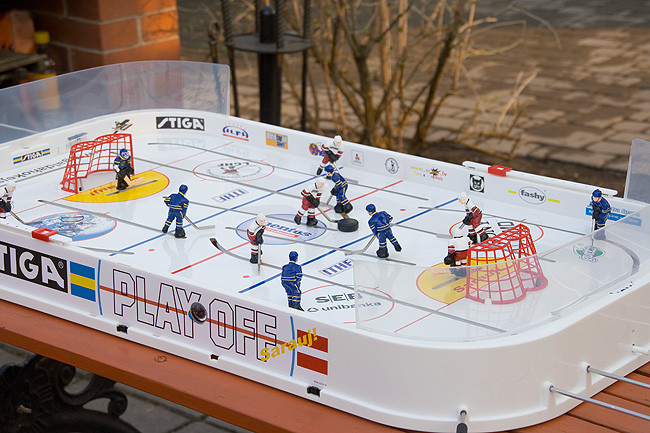
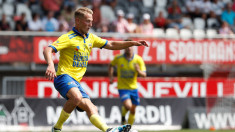
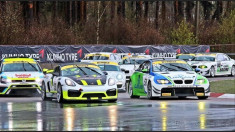
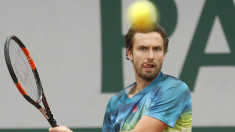
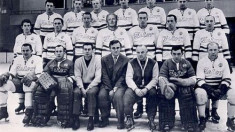
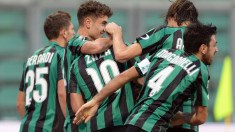
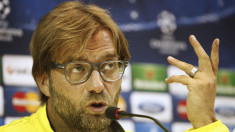
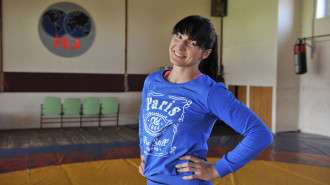
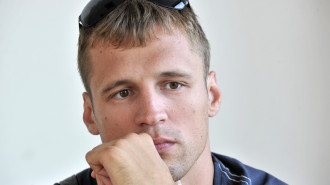
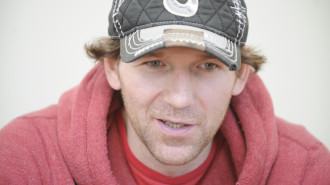
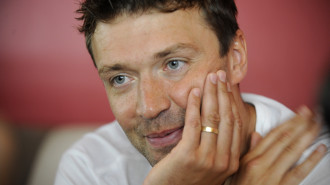
+10 [+] [-]
Nebūtu labāk, ja PČ būtu tikai ik pa pāris gadiem, kā futbolā?
(Tagad, kad ir Dinamo, nebūtu tik traki, ka nav katru pavasari Latvijas izlase hokejā)
Futbolistiem, ja viņi netiek paņemti/dabū traumu uz PČ ir lielākā traģēdija.
+4 [+] [-]
Sarešģītā atbilde - Sidnijam Krosbijam un Co (ar to es domāju ZA spēlētājus un struktūras) ir ja ne pie vienas vietas pasaules čempionāts, tad nav tik svarigs kā NHL. Ir skaidri redzams, ka Eiropas komandām ir savādāka attieksme pret šo notikumu. Krieviem vispār tas ir būt/nebūt jautājums, tāpēc šogad visi brīvie ir savilkti. Kandādieši visār uzšpļāva, atsūtot uz Vāciju zaļos gurķus!!! Tāpēc, ka pasaules čempionāts viņiem būs laba skola pirms īstās kaujas - Olimpiādes!! Sanāk, ka priekš Kanādas PČ ir tikai tāds treniņš.
+2 [+] [-]
+6 [+] [-]
+3 [+] [-]
Kas notiktu, ja gadu pirms OS kādai valstij riktīgi nenoveicas un šie izlido no A grupas, vai tas automātiski nozīmētu, ka Olimpiskais sapnis ir izsapņots??
+3 [+] [-]
Par ko atvainojas Fāzels tiešām nav saprotams. Zembergam ir 100% taisnība.
+3 [+] [-]
Kaut kā nav dzirdēts par šādiem masveidīgiem atteikumiem Pasaules kausā futbolā vai Pasaules čempionātā basketbolā.
Katrs PČ ienes IIHF kasē zināmu apaļu summiņu, tāpēc ir saprotams, ka viņi ir ieinteresēti, lai tas notiktu katru gadu. Jautājums - cik ilgi tas tā turpināsies, cik ilgi sponsoriem būs interesanti ieguldīt naudu šādā turnīrā, ja šāds hokeja zvaigžņu atteikumu vilnis turpināsies arī nākošajos gados?
+2 [+] [-]
-3 [+] [-]
[+] [-]
[+] [-]
a kanādiešiem un jeņīem tok pajāt. Man liekas, izņemot 1998. g. Nagano un 2010.g. Vancouver viņiem pat olimpiādes nav kratījušas īpaši. Un jā, čempim ir jābūt reizi divos vai pat reizi četros gados, tas arī ir fakts, vienkārši baigā rutīna Top7 komandām
-1 [+] [-]
+1 [+] [-]
Tas, ka atsevišķi spēlētāji nevēlas pārstāvēt savu valsti - ir viņu pašu problēma- par to būtu jāuztraucas to valstu līdzjutējiem.
Redzējām šo čempionātu, kurā bija diezgan daudz pārsteigumu un tas būtu negodīgi rīkot čempionātu reizi divos vai četros gados (hokejs nav futbols) - tas, ka mums ir Rīgas Dinamo, kur spēlē izlases kodols nenozīmē, ka tādas komandas ir arī citām valstīm.
NHL ir NHL tas ir gandrīz visu hokejistu sapnis un spēlēt šajā līgā ir prestižš utt., bet pārstāvēt savu valsti ir gods, bet katram ir izvēle. Tikpat labi tādi hokejisti, kā Krosbijs nespēlējot izlasē atstāj vietu jaunajam, kurš varbūt pateicoties tam kļūs par tik pat labu spēlētāju...
+1 [+] [-]
[+] [-]